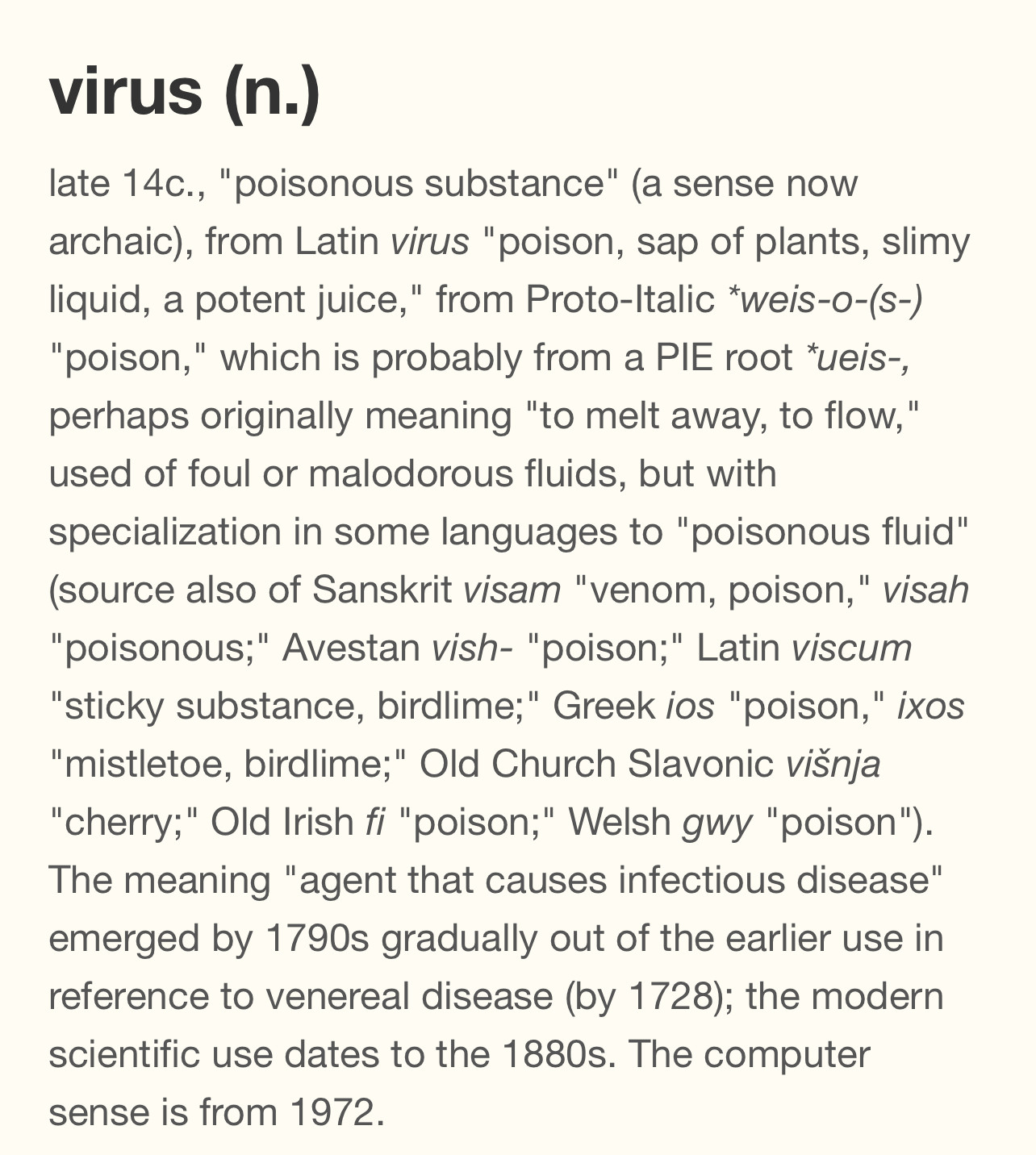Mystic Knight
@MysticKnight
18 March, 10:23
apocalypse (n.)
late 14c., "revelation, disclosure," from Church Latin apocalypsis "revelation," from Greek apokalyptein "uncover, disclose, reveal," from apo "off, away from" (see apo-) + kalyptein "to cover, conceal" (from PIE root *kel- (1) "to cover, conceal, save"). The Christian end-of-the-world story is part of the revelation in John of Patmos' book "Apokalypsis" (a title rendered into English as pocalipsis c. 1050, "Apocalypse" c. 1230, and "Revelation" by Wycliffe c. 1380).
Its general sense in Middle English was "insight, vision; hallucination." The general meaning "a cataclysmic event" is modern (not in OED 2nd ed., 1989); apocalypticism "belief in an imminent end of the present world" is from 1858. As agent nouns, "author or interpreter of the 'Apocalypse,'" apocalypst (1829), apocalypt (1834), and apocalyptist (1824) have been tried.
Tune < I N
late 14c., "revelation, disclosure," from Church Latin apocalypsis "revelation," from Greek apokalyptein "uncover, disclose, reveal," from apo "off, away from" (see apo-) + kalyptein "to cover, conceal" (from PIE root *kel- (1) "to cover, conceal, save"). The Christian end-of-the-world story is part of the revelation in John of Patmos' book "Apokalypsis" (a title rendered into English as pocalipsis c. 1050, "Apocalypse" c. 1230, and "Revelation" by Wycliffe c. 1380).
Its general sense in Middle English was "insight, vision; hallucination." The general meaning "a cataclysmic event" is modern (not in OED 2nd ed., 1989); apocalypticism "belief in an imminent end of the present world" is from 1858. As agent nouns, "author or interpreter of the 'Apocalypse,'" apocalypst (1829), apocalypt (1834), and apocalyptist (1824) have been tried.
Tune < I N
Notice: Undefined index: tg1tga_access in /home/admin/www/anonup.com/themes/default/apps/timeline/post.phtml on line 396
07:36 PM - Mar 21, 2023
In response Mystic Knight to his Publication
Only people mentioned by Appaloosa in this post can reply

